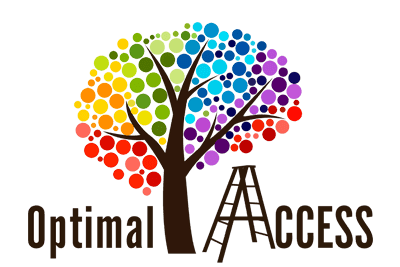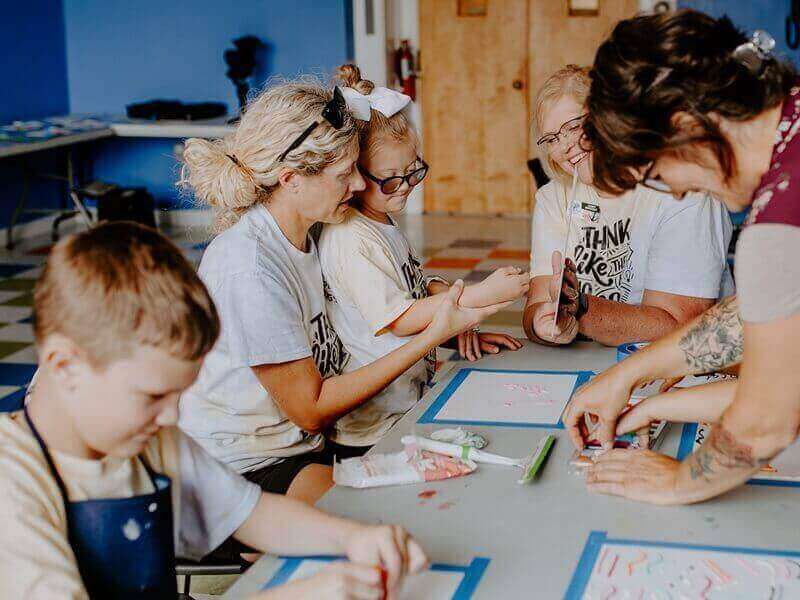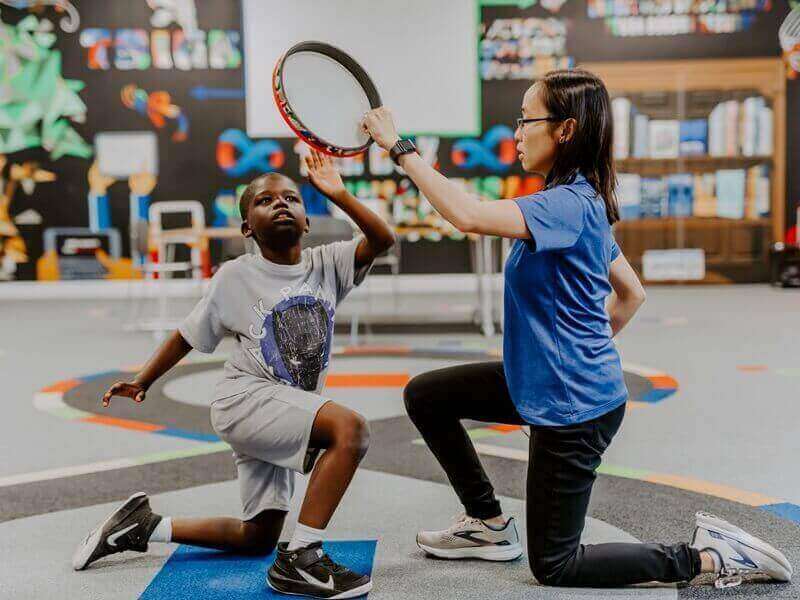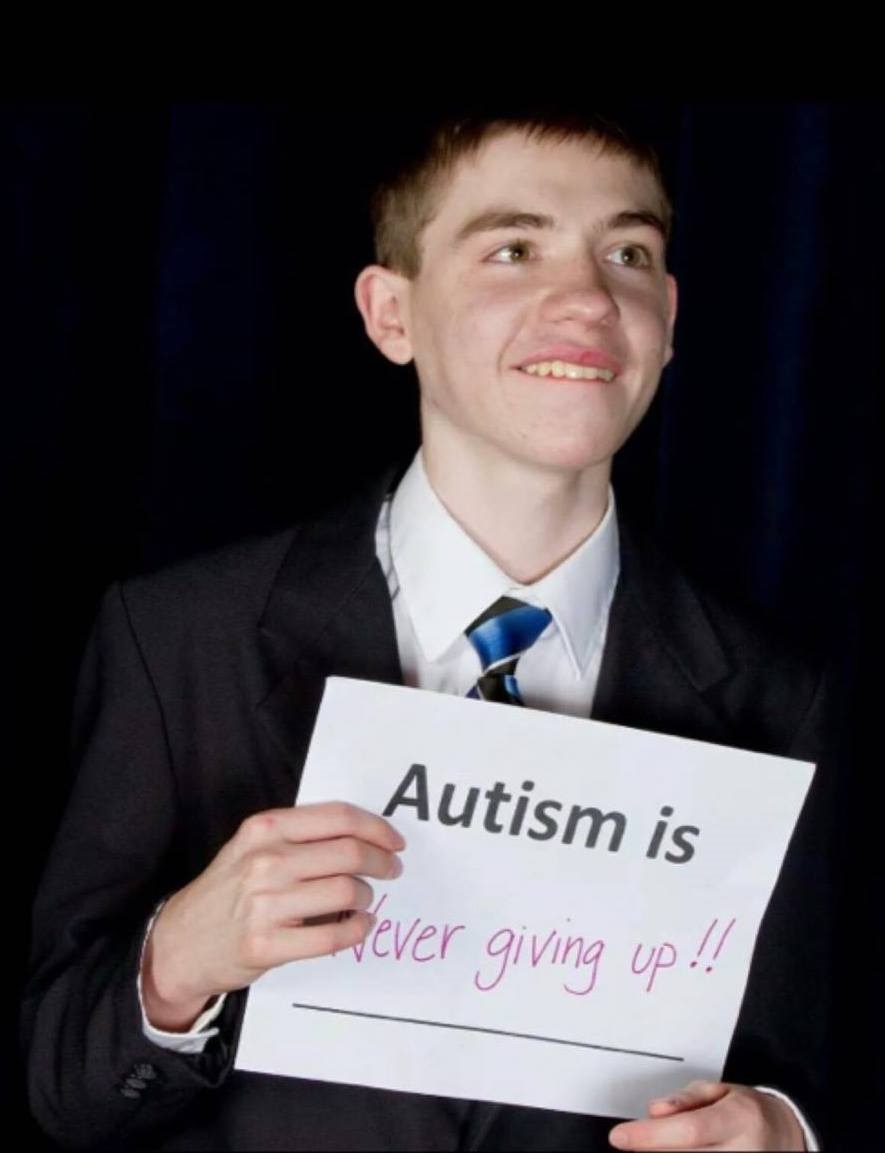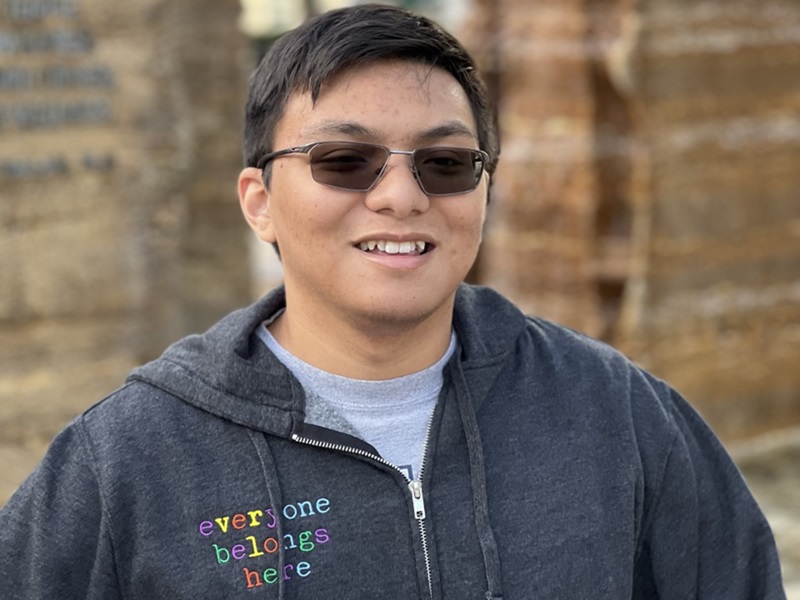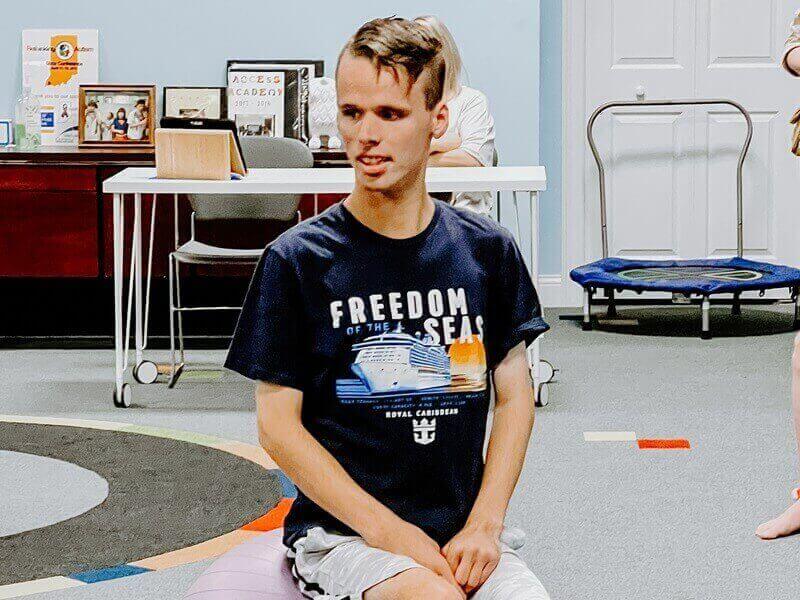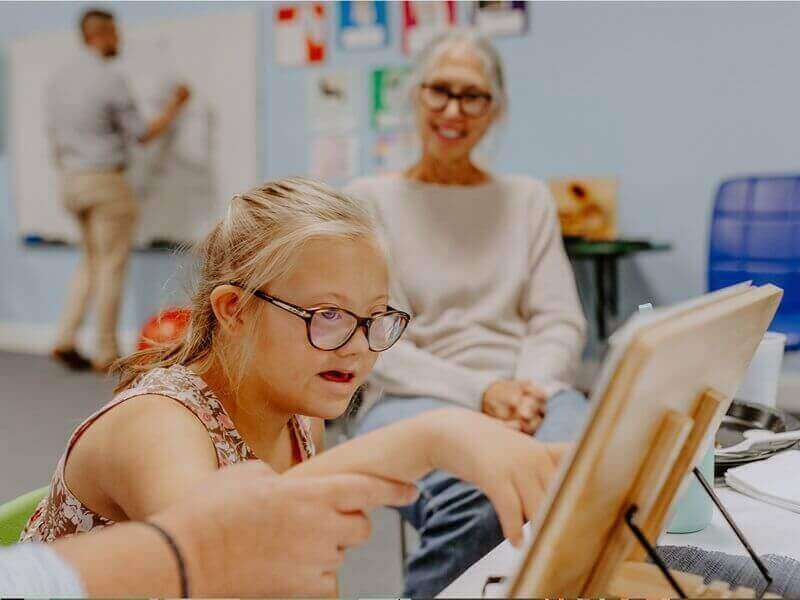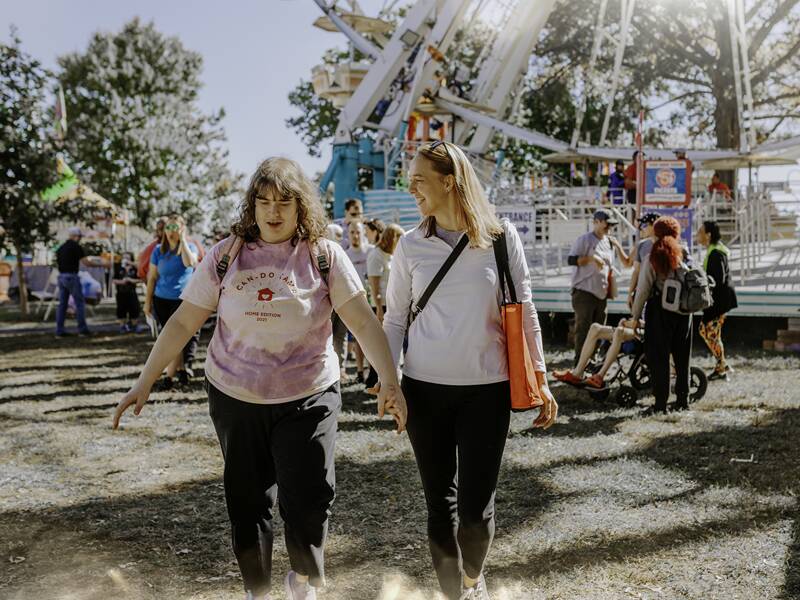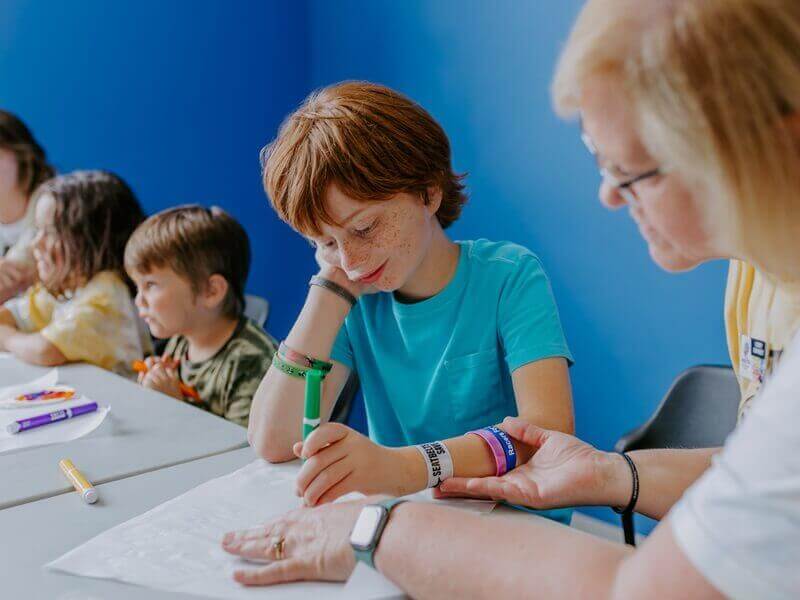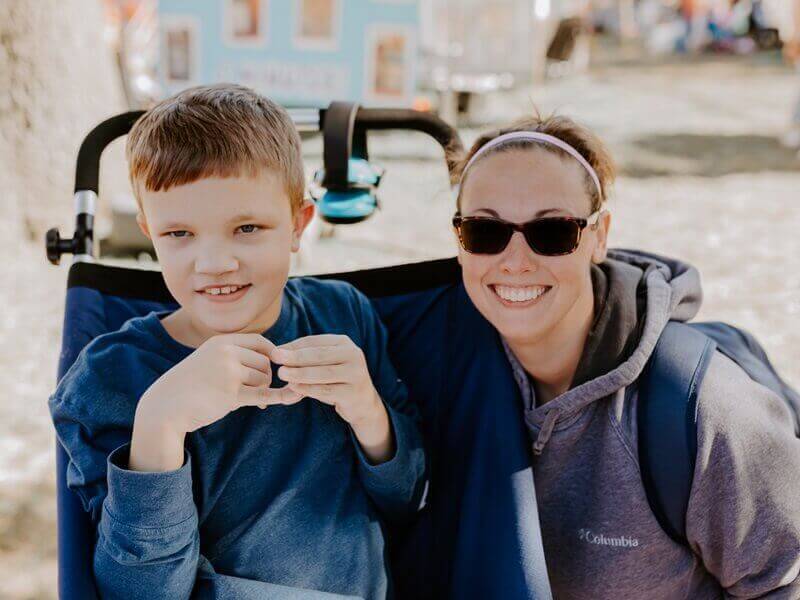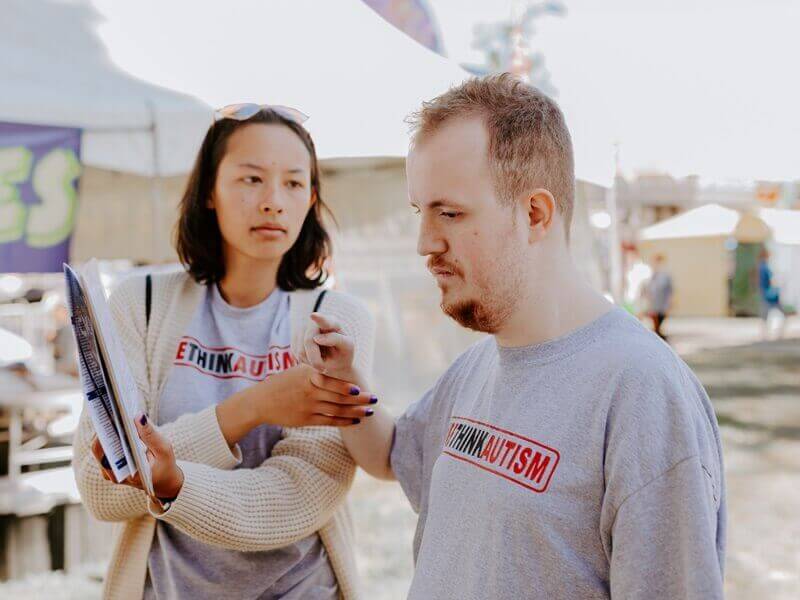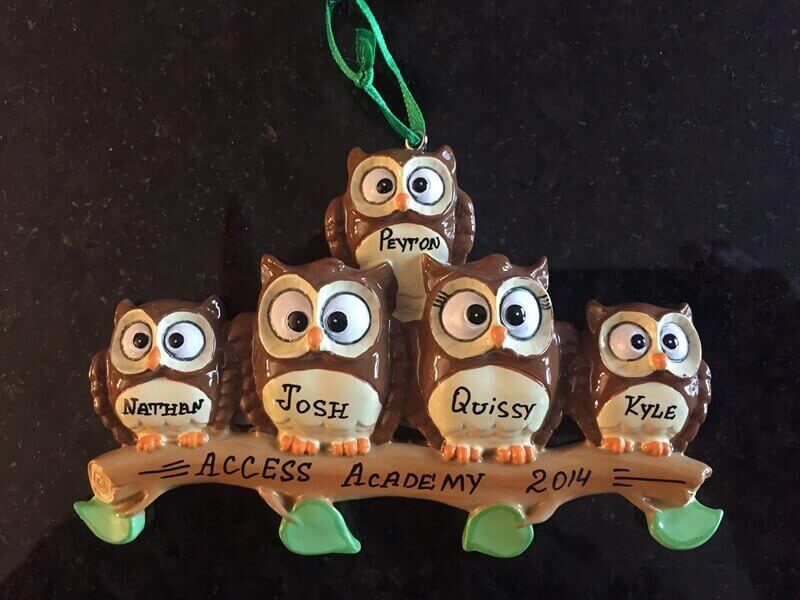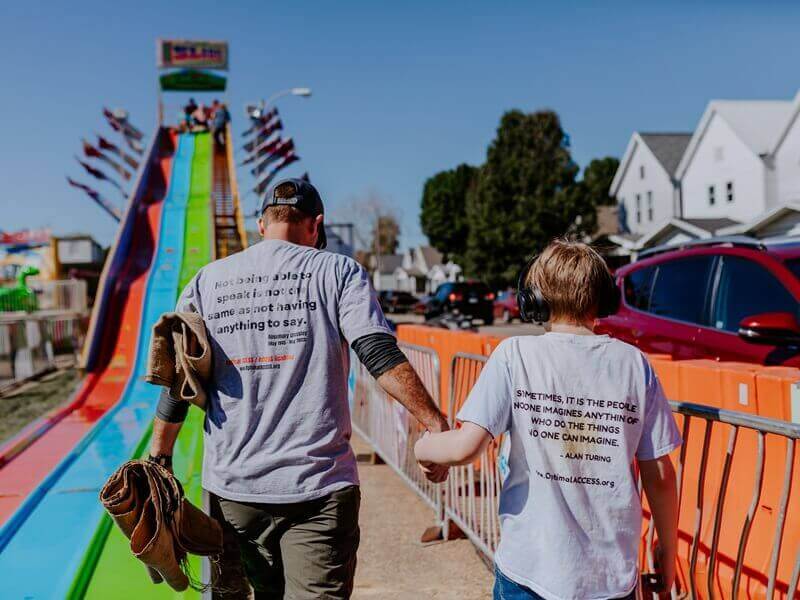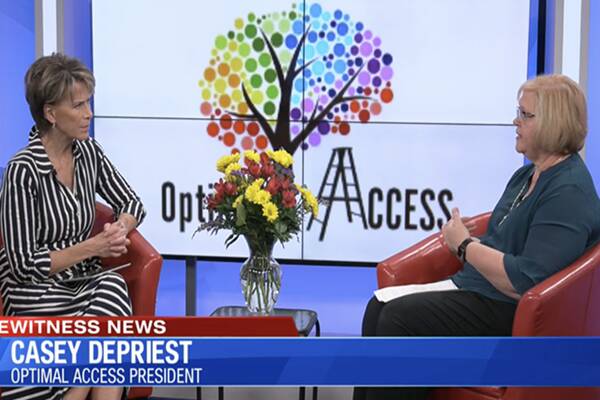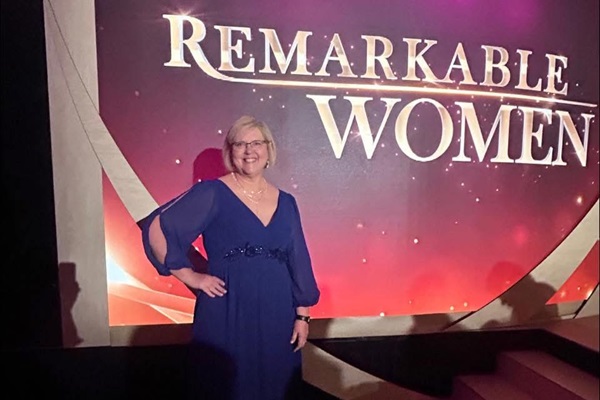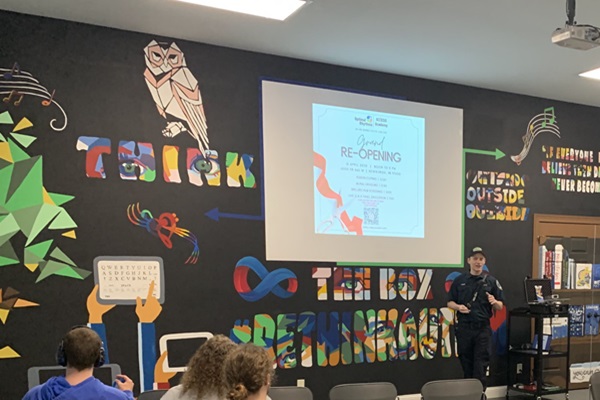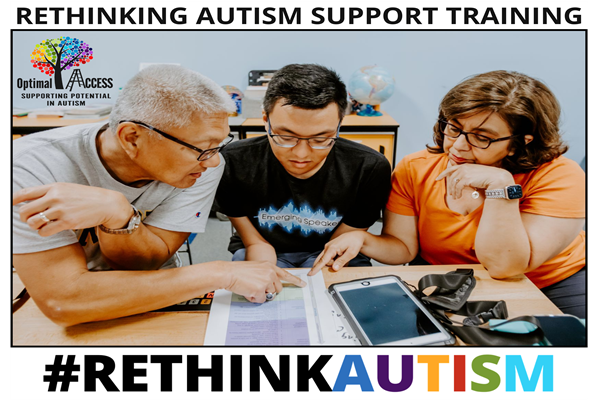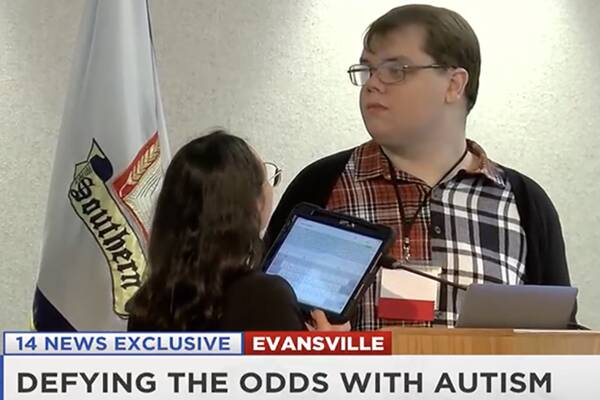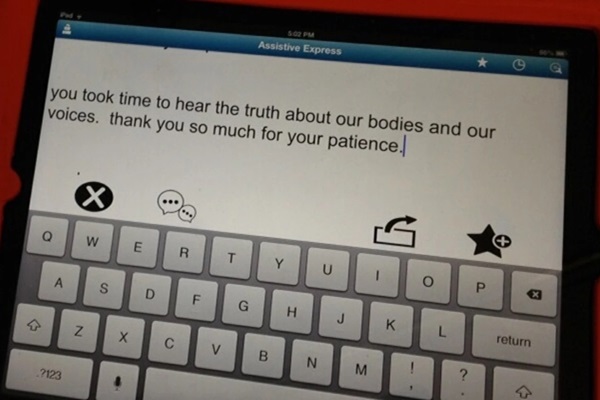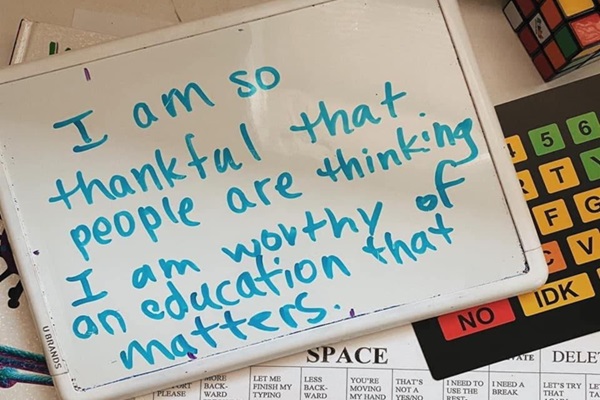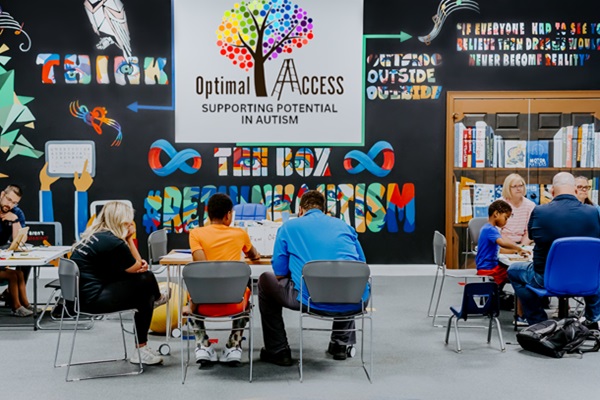Neurologic Music Therapy (NMT)® is a research-based treatment approach, based in applied neuroscience. Our neurologic music therapists use music and rhythm to optimize the way the brain functions. While each neurodivergent person is unique and treatment is individualized, there are some common techniques that are making a tremendous difference for individuals who face significant struggles with the sensory and neuromotor differences, common in autism. For example, movement paired with rhythm can help develop new sensory and motor brain connections, which improves body awareness, coordination, and motor planning.
By addressing autism at the brain level, NMT can positively and respectfully support skills and abilities that allow for improved communication, academic access, meaningful relationships, and a true demonstration of a nonspeaking person’s agency.
